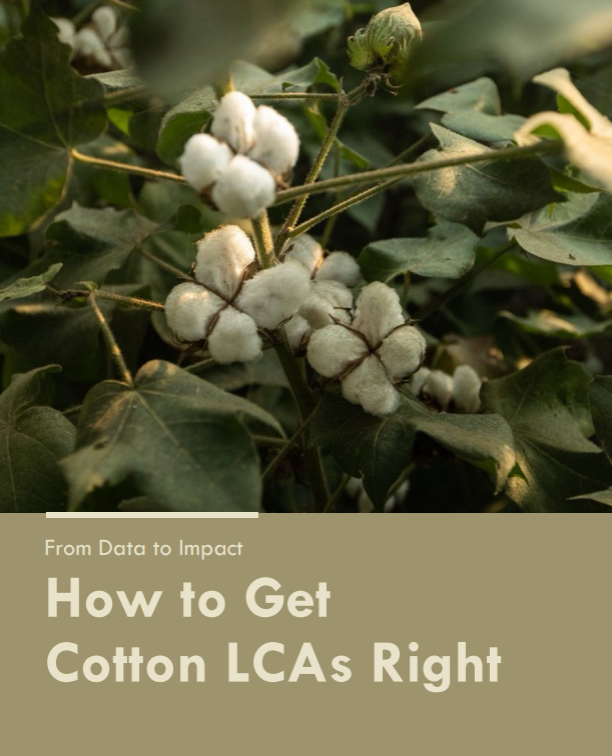

A network of multistakeholder initiatives, including the Better Cotton Initiative, Cotton Incorporated, Cotton Australia, and the U.S. Cotton Trust Protocol, has released new guidelines on Lifecycle Assessments (LCA) to help the fashion and textile sectors use them effectively, reliably, and alongside complementary methodologies.
Presented in the report ‘From Data to Impact: How to Get Cotton LCAs Right’, the guidelines call for LCAs to be used alongside primary data collection methods to optimise field-level insights and support holistic, data-driven sustainability communications.
Lars van Doremalen, Director of Impact at the Better Cotton Initiative, said: “With stronger methodological discipline and clearer communication, the cotton sector can ensure that sustainability claims are science-based, data-backed, and farmer-informed.
“The path forward demands coordinated action from companies, initiatives, and policymakers that is grounded in scientific integrity, acknowledgement of limitations, and real-world applicability.”
The paper, also supported by Cascale, Textile Exchange, and the Cotton Research and Development Corporation, argues that LCAs are often misused across the apparel sector. It adds that their misapplication – whether through inappropriate comparisons, limited context, or a disregard for methodological boundaries – risks not only undermining trust in sustainability claims and data integrity, but also misleading investments and interventions.
Jesse Daystar, Chief Sustainability Officer at Cotton Incorporated, said: “LCAs are like looking through a keyhole, you certainly see something, but it is never the full picture.”
The report underlines that, while LCAs can help identify and prioritise environmental interventions, support regulatory compliance and track long-term trends, they do not account for social indicators or short-term changes in farming practices – therefore presenting a simplified picture of farm-level realities.
The report’s authors have called for greater industry alignment both among standard bodies to define key data metrics, and brands and retailers to ensure that LCA results are used appropriately and in support of farm-level investment in sustainable outcomes.
Allan Williams, Executive Director at Australia’s Cotton Research & Development Corporation said: “LCA doesn’t add anything for a farmer at the moment… Our focus is to invest in the fundamental research so we can understand which practices have the most impact rather than just collecting data for the sake of an LCA.”
The paper’s authors call on the prioritisation of new primary data collection and for stakeholders using LCA data to invest in both literacy training for its correct use as well as supporting real, on the ground impact within their supply chains.
Notes to Editor
- The position paper has been produced by consultancy Earthshift Global and funded by the Better Cotton Initiative, Cotton Incorporated, Cotton Australia, and the U.S. Cotton Trust Protocol. Cascale, Textile Exchange, and the Cotton Research and Development Corporation supported the paper’s development.
- Daren Abney, Executive Director at U.S. Cotton Trust Protocol, said: “LCAs can be a powerful tool for progress, but they must be applied with transparency and context. By improving LCA literacy and aligning on how results are applied, we can ensure data drives the right kind of impact.”
- For more information and interview requests, please contact Chris Remington ([email protected]).








































